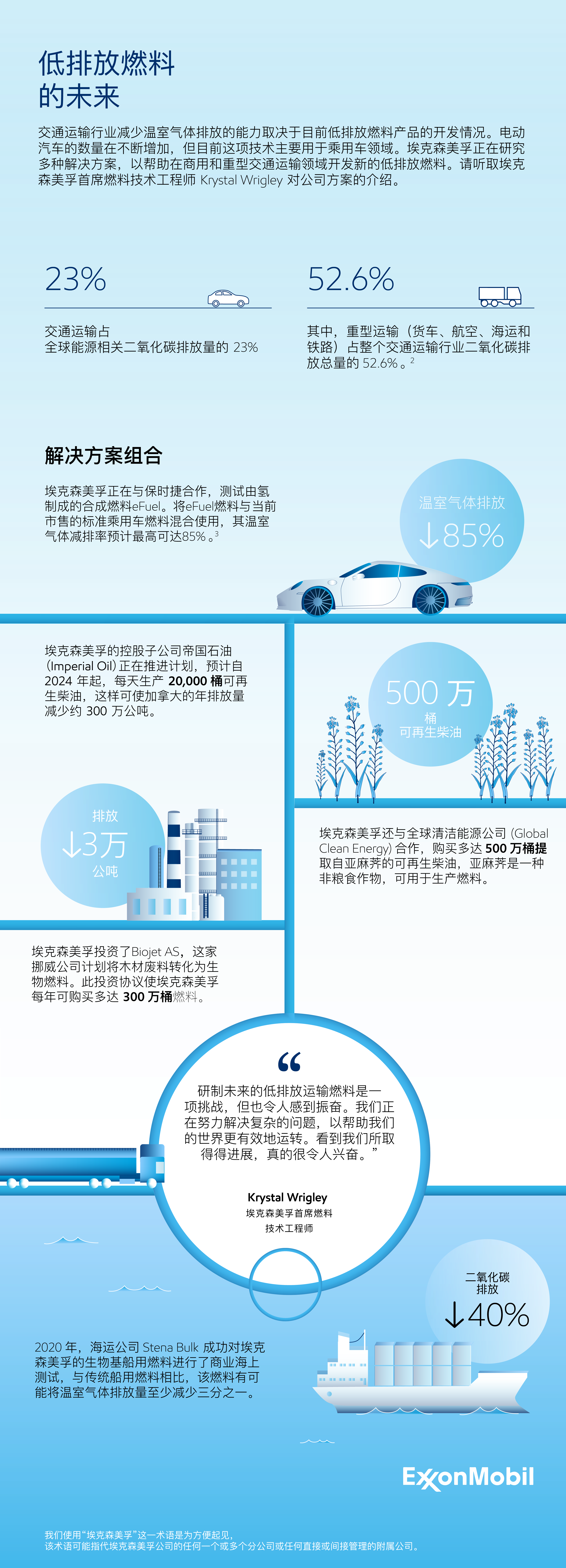减少排放
交通运输燃料的未来
23/03/2022
减少整个交通运输行业温室气体排放的重要任务需要一系列解决方案。了解埃克森美孚正在开发的低排放替代燃料,助力推动交通运输业的未来发展。
减少交通运输行业的温室气体排放对于管理全球能源转型至关重要– 尤其是全球近四分之一能源相关的二氧化碳排放来自交通运输。
埃克森美孚正在探索多种低排放燃料选择,包括第二代或先进的生物燃料以及使用氢气和捕获的 CO2 生成的甲醇所制造的合成燃料。
以下是我们为此所作的努力,以及共同探索这些解决方案的合作伙伴。

1. Source: IEA
2. Source: Our World in Data
3. The GHG emissions reduction stated here, relates to the comparison of the calculated carbon footprint of product (CFP) for the renewable components in the PMSC race fuel versus a 94 grams CO2e/MJ of EU Renewable Energy Directive II baseline comparator. Emissions reduction of up to 85% from renewable components vs. conventional are based on carbon footprint of product calculations conducted under ISO 14067 methodology, effectively referenced as a well-to-wheels boundary, taking into account the feedstock, production, transportation, and combustion related emissions to manufacture the blend of renewable components mentioned here. A functional unit of 1 MJ of fuels was used for the comparison.
4. Benefit is up to 34 percent compared with conventional petroleum-based HFO/VLSFO, calculated on an energy basis. Well-to-wake GHG emissions reduction calculated using the equation as published in the Directive 2009/30/EC of the European Parliament and of the Council Annex IV A and EN 16258.

